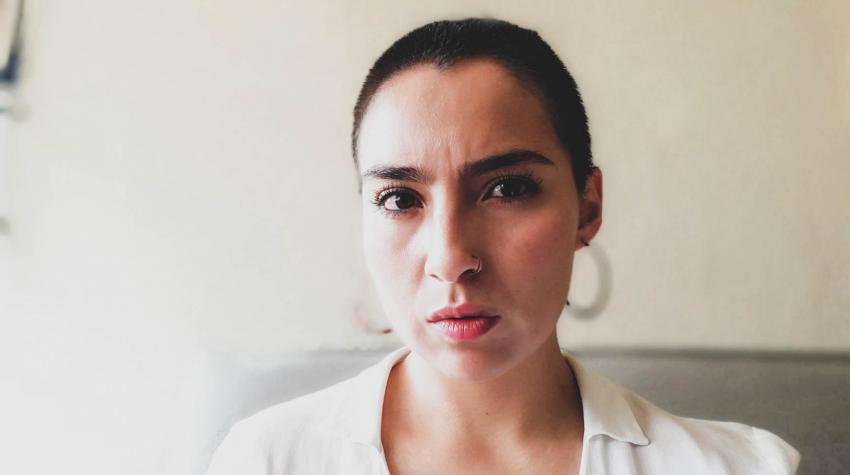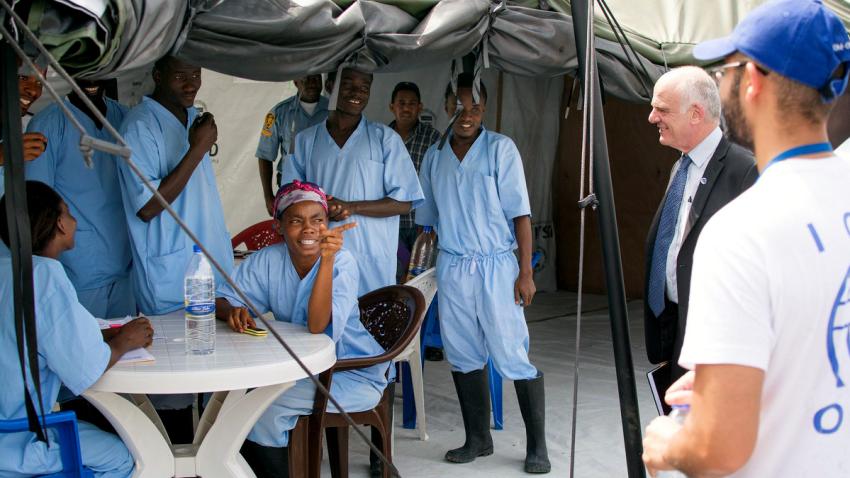For Mexican investigative reporter Alejandra Crail, who’s just been awarded the prestigious Breach-Valdez prize for Journalism and Human Rights, the COVID-19 quarantine has been a chance to reassert her conviction that the truth must be told about both the virus and other darker issues that she says have been ignored for too long. It’s a message that’s shared by the head of the UN Information Centre, Giancarlo Summa, writes UN Geneva’s Solange Behoteguy Cortes.
The murder of children under 15 at the hands of caregivers takes place every other day in Mexico. Investigative journalist Alejandra Crail finds that COVID-19 makes justice even more elusive for the victims.
Alejandra began studying the subject in 2017 when she was helping a friend who was reviewing old State homicide case files from the Servicio Médico Forense (Semefo). She found that many murders of children were classified as Kempe’s Syndrome, a condition that includes a physical or mental injury inflicted on a child by the child's own parents, guardians, or caregivers. After more research, she learned that it was far more common than she had first thought and that giving it a name did little to address the deadly reality of what was happening in her country.
An open secret
Already in the 1960s, Mexican academics were talking about it and yet the subject remained stubbornly absent from public awareness or debate. "I thought it was brutal, why aren't we talking about this," Alejandra says.
"We don't want to face it, so as not to destroy the image of the perfect family." It remains a taboo subject, which "most of the time fills the crime pages without addressing the causes in depth." Media coverage often blames the mother, regardless of whether she was involved or not, frequently asking: "Where was the mother? Why didn't she prevent it? What a bad mother!"
Bringing the story to light
Alejandra published her report, "To Kill a Son," in the online magazine Emeequis last October at a time when journalists are frequent targets for their writing. "Today, being a journalist can cost you your life, but being a woman can cost you your life, being a child can cost you your life," she says, simply. “Fear is useful and necessary, but it should not immobilize us. I am optimistic, I like to think of journalism as a tool to generate change."
In standing for the truth through her reporting, Alejandra finds inspiration in the UN’s new "Verified" campaign which aims to fight misinformation and promote trusted sources. “It invites citizens to be part of the choice of information and remind them that information has no effect if it does not move something within each of us," Alejandra explains. “We are responsible for the words we use and how we tell our stories.”
COVID-19 adds new layer to the story
During COVID-19, Alejandra learned that her reporting won an award at a time when the issue of child abuse had taken a darker turn. "In quarantine we are blind, we lose the eyes that usually watch over us outside our close circle, our friends and teachers," says Alejandra, who remembers the case of a girl killed last April in Chihuahua. Her parents took her to her grandparents' house, thinking that she would be safer there from the pandemic. One day, the grandparents called the emergency services to report that their granddaughter was sick with COVID-19 symptoms. When the paramedics arrived, they found the girl dead, with signs of strangulation and traces of sexual assault.
For her meticulous research and dedication to the truth, Alejandra won the Breach-Valdez prize for Journalism and Human Rights. "Receiving the award means that it is time to talk about the issue,” Alejandra says. “It gives us the possibility to prevent this from happening again and stand with the victims and families who dared to share something so intimate, because the personal is political in this context."
Importance of press freedom
"This report forces us to look at something we don't want to look at," notes Giancarlo Summa, Director of the United Nations Information Centre for Mexico, Cuba and the Dominican Republic. His office created the Breach-Valdez Award in 2018 together with other national, international and United Nations institutions.
More than words on a page, “journalism has to serve as a source of light in the midst of darkness," he concludes.




